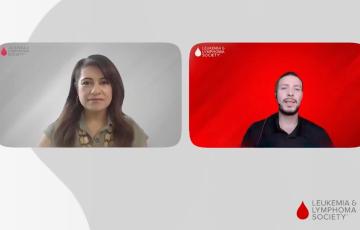Search Results

How Patients Really Feel About Artificial Intelligence in Healthcare
It seems that everywhere we turn lately we hear something about the promises and the perils of artificial intelligence (AI). AI is touted as a smart, efficient tool that can speed and streamline processes, analyze and manage complex data, and cut time and costs.
In the healthcare setting, it has the potential to be used to review and gather medical information quickly, screen for risk of disease and suggest diagnoses, provide second opinions, prevent harmful medication interactions, identify treatment options and clinical trials, reduce patient wait times, and much more.
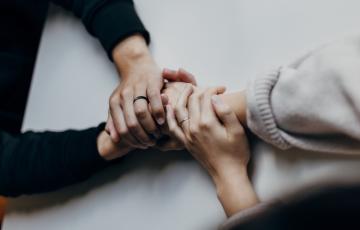
Top Mental Health Resources For Blood Cancer Patients & Caregivers
From physical symptoms of blood cancer itself to treatments and their side effects, the experience puts a patient’s body through a lot. But how does cancer affect you emotionally?
Bottom line: Learning that you or someone you love has a serious illness is scary.
It reaches beyond blood tests: You might feel hopeless, irritable, or lose interest in things you once enjoyed. That’s why taking care of your mind, just as much as your body, is crucial when you’re facing blood cancer.

Because You Volunteer, Your Impact Creates a Ripple Effect
When you commit time and talent to a nonprofit’s mission – no matter how you choose to get involved – you become a volunteer, and the impact of your efforts runs far deeper than the specific project or task you work on. For example, volunteers don’t always realize that the hours they spent stocking shelves meant hundreds of families would have food for two weeks. Or that the time spent fundraising not only raised critical mission dollars but also added value upward of $1,250 to the organization’s bottom line.

Why Monthly Giving Matters
Giving regularly over time = giving patients and survivors the chance for more time.
Monthly giving really deserves more credit—credit as a predictable, impactful funding force for our lifesaving and life-changing work. For The Leukemia & Lymphoma Society (LLS), the reliability of a regular gift helps to sustain cutting-edge research and to provide the free resources and support blood cancer patients and survivors need to live longer, better lives.
It’s about ongoing generosity. It’s about creating a lasting impact.
And...
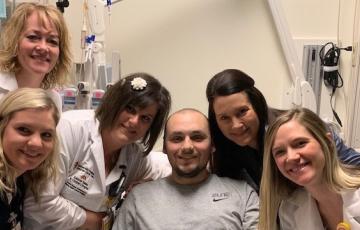
Why We Love Nurses (And You Should Too!)
It makes sense that at diagnosis and throughout treatment, someone diagnosed with a blood cancer will look around them for answers or support.
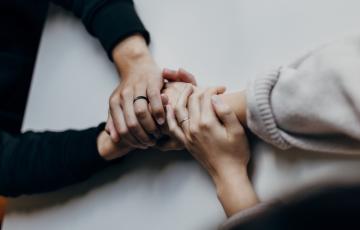
How to start accepting help
It’s been another long day. A long list to check off. You’re doing it all yourself, making sure everything is in order, that everyone has what they need.
And you’re exhausted. But asking for help—or even accepting it when it’s offered—might seem intimidating. You don’t want to overwhelm others or bring them down.
Cancer might happen in the body, but its impact goes beyond that. Whether you’ve been diagnosed or someone you love has, if you feel stressed out or like you’re on your own, you’re not the only one.
LLS advocates helped North Carolina expand Medicaid
North Carolina Gov. Roy Cooper just signed Medicaid expansion into law, following years of advocacy from LLS volunteers and staff.
Once it takes effect, the bipartisan deal will make 600,000+ North Carolinians newly eligible for lifesaving care, including cancer screenings and treatment.
How Surviving Cancer Gave me a Second Birthday
Birthdays are a time for celebration as we become one year older, wiser, and more mature. For cancer survivors, we carry with us another date that symbolizes even more. This is our second birthday. Similar to an actual birthday, this day often carries feelings of even more nostalgia and remembrance. However, it can also grip us with feelings of dread, anxiety, and even post-traumatic stress disorder (PTSD). No matter how far along we are in our journey through survivorship, our second birthday pulls at us to stop and compassionately remember all that we’ve been through.

Champions in myeloma research: A conversation with Urvi A. Shah, M.D. M.S.
March is Myeloma Awareness Month, and it’s also Women’s History Month. So what better time to spotlight LLS-funded women scientists who are driving discovery for myeloma patients.
In this first of my two-part series on myeloma researchers, I sat down with Urvi A. Shah, MD, MS, an Assistant Attending in the Myeloma Service at Memorial Sloan Kettering Cancer Center.
3 Insights from a Clinical Trial Patient
The road to finding new and better cancer treatments often includes an important step: clinical trials. For patients with hard-to-treat diseases, these studies can be superhighways to the right treatment. A clinical trial can tell oncologists whether a new treatment works, how certain cancer types affect the body, and more.
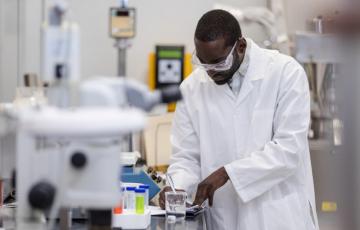
Balancing fiscal responsibility with saving and improving lives
Table of contents:

